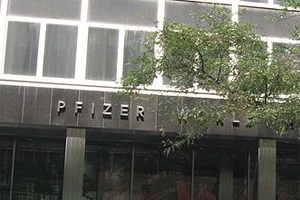 Pfizer has elected to stop development of a hepatitis C candidate in mid-stage testing after a strategic review of its pipeline.
Pfizer has elected to stop development of a hepatitis C candidate in mid-stage testing after a strategic review of its pipeline.
The decision to drop filibuvir, reported by the Wall Street Journal on Friday, effectively means that Pfizer has withdrawn from the race to develop a non-interferon-based regimen for hepatitis C.
Filibuvir (also known as PF-00868554) is a non-nucleoside NS5B polymerase inhibitor and was lagging behind compounds in the same class in development from the likes of Gilead Sciences and AbbVie.
The decision to pull the compound was not related to any safety issue uncovered in phase II trials, a spokesperson for the company told the WSJ, and the decision is not expected to be a major setback for the company.
Filibuvir was Pfizer’s only clinical candidate for hepatitis C, so Pfizer would have had to partner with other drug developers to get its compound included in combination regimens for the disease.
Aside from vaccines, the infectious disease category is a sparsely-populated area of Pfizer’s pipeline, with the only other drugs listed in its latest update a combination of azithromycin and chloroquine for malaria and tuberculosis candidate PNU-100480.
Filibuvir was an outlier candidate for the company outside its core R&D focus in cardiovascular and metabolic disease, oncology, inflammation and immunology, and disorders of the central nervous system (CNS).
For years, the current standard of care for hepatitis C infection was injectable pegylated interferon-alpha alongside oral ribavirin, but treatment is lengthy and only effective in around 50 per cent of patients.
Latterly, protease inhibitors such as telapravir – sold by Vertex as Incivek, by Johnson & Johnson as Incivo and by Mitsubishi Tanabe as Telavic – and Roche/Merck’s Victrelis (boceprevir) have been added to the mix.
These and other oral, directly-acting antivirals are expected to drive growth in the market from around $3bn in 2011 to nearly $21bn in 2018, according to data from Decision Resources.
The first interferon-free hepatitis C regimens are expected to reach the market next year once new oral drugs, such as NS5B polymerase inhibitors such as AbbVie’s ABT-333 and Gilead’s sofosbuvir (GS-7977), which are in late-stage development.
Bristol-Myers Squibb’s nucleotide NS5B polymerase inhibitor BMS-986094 suffered a setback last year, however, after a safety issue merged in a phase II trial looking at its use alongside the company’s NS5a inhibitor daclatasvir.




